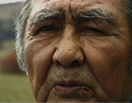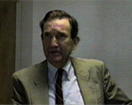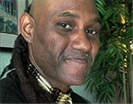|
|
"When we were at the Sundance grounds we danced for the women and children for the pain and the suffering that must end for them. This is what we were dancing for." |
|
|
"We should recognize Gustafsen Lake for what it really is. There are 200 million indigenous people struggling for survival. The simple truth is that we have to learn to love our native people." |
|
|
"No institution within human society is above the law. Essentially what the judges are saying is that they are above the law." |
|
|
"A systematic media disinformation and smear campaign that Above The Law Part 2 now clearly proves was operative in 1995, beyond any shadow of a doubt." |
|
|
"Somebody above the level of constable made the decision that the ERT was going in and nothing was going to change their mind. They were going to go in and put on a show of force to set an example." |
|
|
"On the government's part there were things that they said happened one way and when you look at certain films you see that they didn't happen the way the government said that they did." |
Dosanjh defends role in 1995 standoffDocumentary criticizes handling of confrontation with Natives at Gustafsen Lake |
|
Robert Matas "I had to do the right thing and enforce the law," Mr. Dosanjh said in an interview. The RCMP decided what had to be done and how to do it, Mr. Dosanjh said. His responsibility, as attorney-general, was to ensure that law was enforced appropriately and to speak out, if necessary, to ensure British Columbians that everything was okay. Mr. Dosanjh added that he was appointed attorney-general on Aug. 16, 1995, less than 72 hours before the RCMP held its first news conference on the Gustafsen Lake confrontation. "I did what I felt was appropriate," he said, adding that he felt it was appropriate to urge the small group of militant Natives to negotiate their land claims, and that "it was unacceptable to carry guns to settle land disputes." A new documentary on the armed standoff, which was one of the largest police actions in Canadian history, portrays Mr. Dosanjh as playing a prominent role in manufacturing a crisis to justify the involvement of the Canadian military. A small group of Natives and their supporters had gathered for a sacred ceremony at an ancestral site near Gustafsen Lake, 450 kilometres northeast of Vancouver. When the police tried to evict them from the land, which was owned by a rancher, the group held the RCMP at bay for 31 days. Several rounds of ammunition were fired during the siege but no one was killed. Mr. Dosanjh is shown in the 60-minute film, called Above the Law, Part II and broadcast Friday on the Aboriginal Peoples’ Television Network, making inflammatory statements at the beginning of the confrontation. The film, written and produced by B.C. videographer Mervyn Brown, also shows correspondence from Mr. Dosanjh to former federal solicitor-general Herb Gray, requesting support from the Department of National Defence, based on police reports of violence at Gustafsen Lake. |
On Aug. 27, 1995, Mr. Dosanjh asked Mr. Gray for four armoured personnel carriers with military driver and crew commanders, an explosive-ordnance disposal team and food rations. He wrote again, on Sept. 15, 1995, requesting four .50-calibre McMillan sniper rifles and ammunition from the Canadian Forces. "The further request is due to recent shooting incidents, the aggressive and offensive nature of the militants and the provincial police force’s limited sniping ability to protect resources," he stated. Based on comments by police in an internal RCMP training film and excerpts from government and RCMP documents, the film alleges that the incidents of violence were concocted. Anthony Hall, a professor of Native American Studies at the University of Lethbridge and a critic of how the crisis was handled, said in an interview that Mr. Dosanjh set the tone for events that followed by making accusations without evidence to substantiate his claims. "He was essentially the hawk, pressing for the military to step in," Prof. Hall said. Mr. Dosanjh said yesterday those who feel they were treated poorly at Gustafsen Lake could file a complaint with the RCMP Public Complaints Commission. He said the complaints commission could hold a hearing similar to the high-profile examination of how police handled protesters at an Asia Pacific Economic Co-operation summit in Vancouver in 1997. However, the critics — including the Assembly of First Nations, the Green Party of British Columbia, several B.C. native bands and human rights groups — want a full public inquiry into the Gustafsen Lake siege. An independent judicial inquiry should be appointed, with power to subpoena the B.C. Premier and those in the federal government who could shed light on the military’s involvement, said John Hill, an Oneida native who is know as Splitting the Sky. Source, Globe & Mail, May 3, 2000 |





